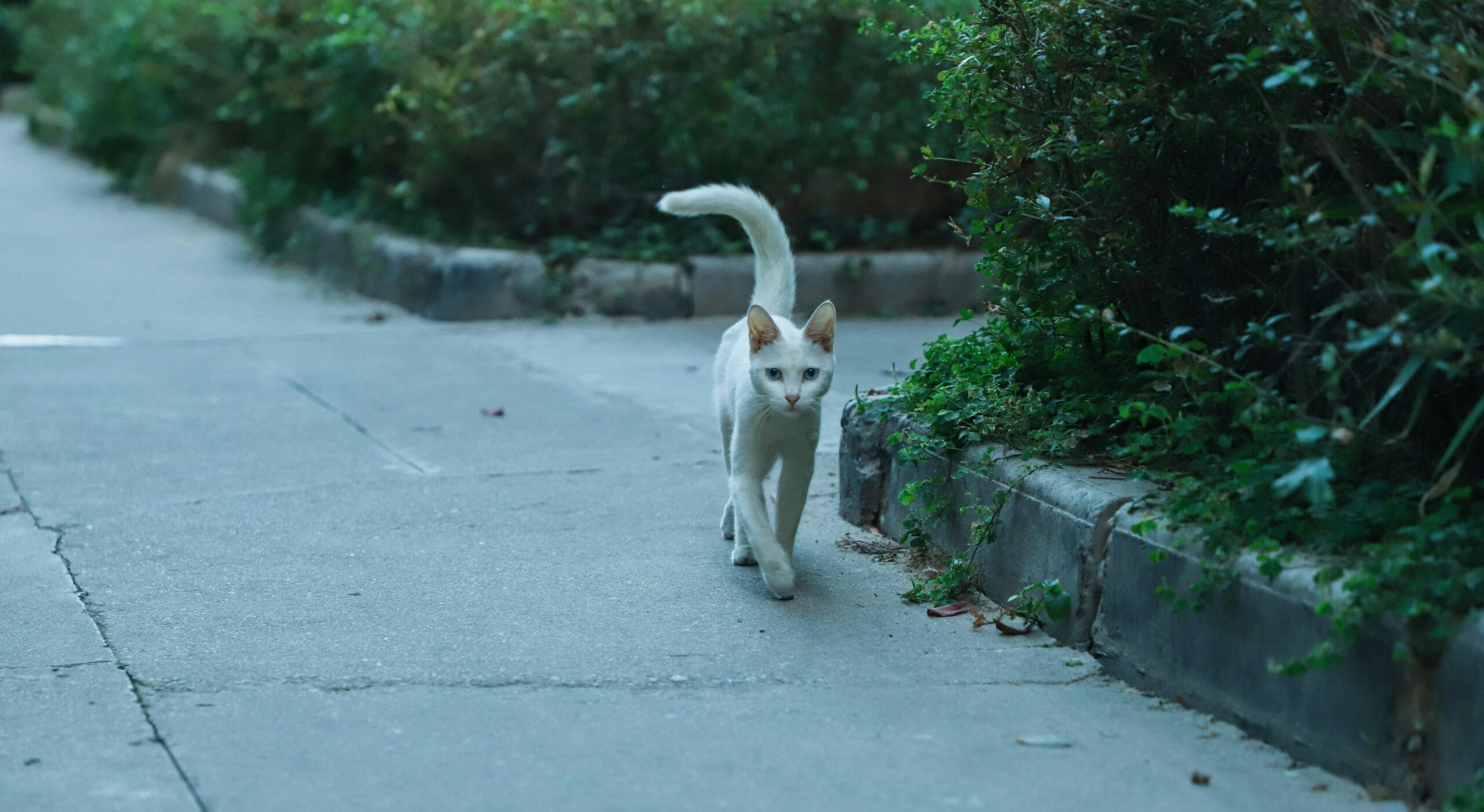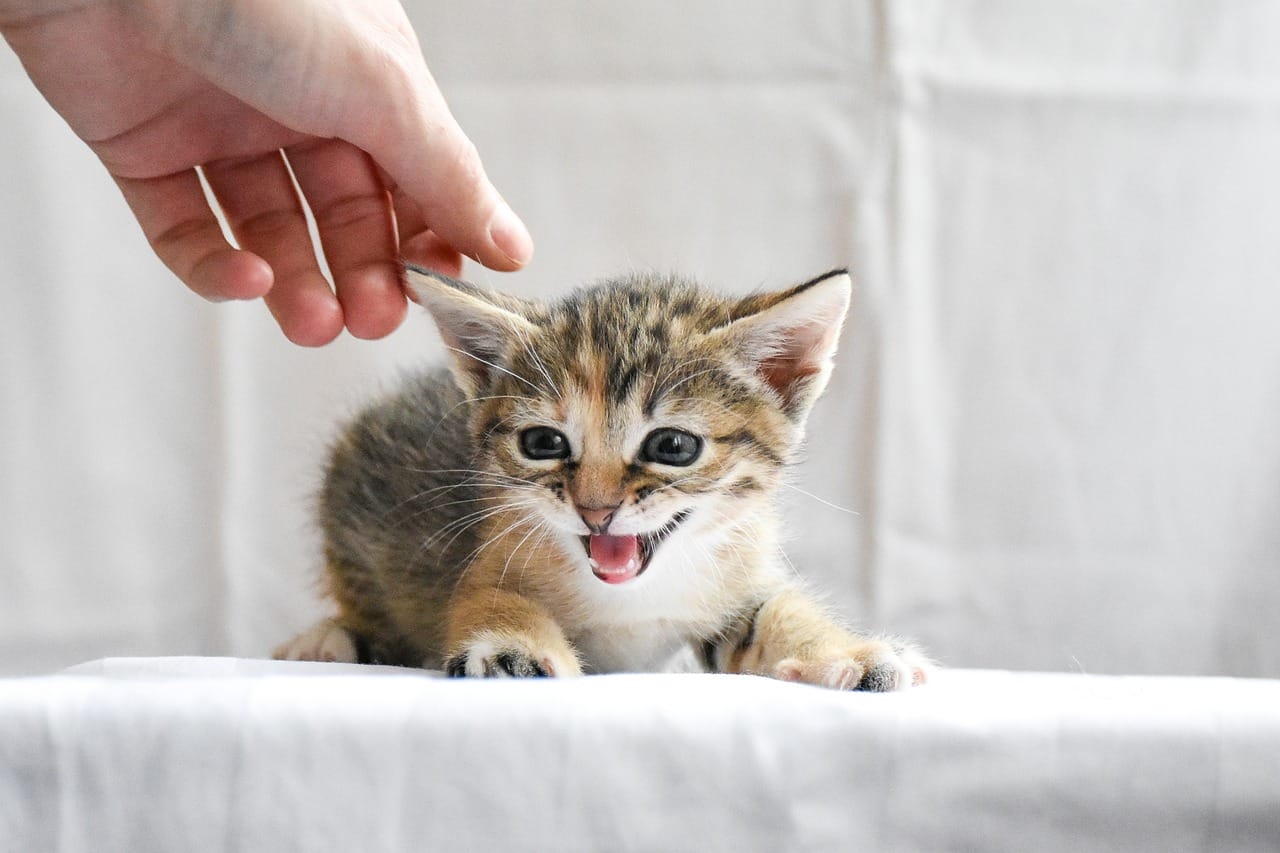Can Kittens Eat Tuna? Can cats eat tuna? Is tuna bad for kittens? Find out the truth about feeding tuna to your feline friend! Discover safe & healthy alternatives for your kitten’s diet. Learn now!
Can Kittens Eat Tuna? A Vet-Approved Guide
The question, “Can kittens eat tuna?” is a common one among new cat owners. While the sight of a tiny kitten batting at a piece of tuna might be adorable, the answer isn’t a simple yes or no. Understanding the nutritional needs of kittens and the potential dangers of certain human foods is crucial for their health and well-being. This comprehensive guide will explore the complexities of feeding kittens tuna, addressing concerns like nutritional deficiencies and potential health risks. We’ll also delve into the broader question of can cats eat tuna in general, clarifying the differences between adult cats and kittens.
Is Tuna Bad for Kittens? Understanding the Risks
While a small amount of tuna might seem harmless, is tuna bad for kittens? The answer is largely yes, especially in frequent or large quantities. Tuna, particularly canned tuna, is high in sodium, mercury, and fat. These elements can be detrimental to a kitten’s developing body. High sodium intake can lead to dehydration and electrolyte imbalances, while mercury can accumulate in their system over time, causing neurological damage. The high fat content in tuna can contribute to obesity and pancreatitis, both serious concerns in kittens.
Furthermore, tuna lacks the essential nutrients a growing kitten needs. Unlike specially formulated kitten food, tuna doesn’t contain the balanced mix of proteins, vitamins, and minerals necessary for healthy growth and development. Feeding your kitten tuna regularly could lead to nutritional deficiencies, impacting their bone growth, immune system, and overall health. It’s important to remember that their dietary needs are significantly different than those of adult cats. For instance, just as offering your feline friend cherries might lead to digestive upsets, as discussed in our guide on can cats have cherries?, offering tuna regularly could also have severe repercussions.
Can Kittens Eat Tuna? The Nutritional Deficiency Issue
Kittens require a diet rich in taurine, an amino acid crucial for their heart and vision. Tuna, while containing some taurine, doesn’t provide enough to meet a kitten’s needs, particularly during their rapid growth phase. A deficiency can lead to serious health problems, highlighting the importance of a balanced diet from commercially available kitten food. This is also true for other fruits, such as grapes; if you’re wondering can cats eat grapes? , the answer is similarly cautious—avoid feeding grapes frequently.
Similarly, the convenience of canned cat food doesn’t always equate to healthy nutrition. While convenient, certain brands could lead to digestive issues. For further insights, check out our article on does canned cat food cause diarrhea? for additional information and insights into making informed food choices for your feline friend. Choosing a high-quality kitten food is vital to ensure your little one receives all the necessary nutrients for healthy growth and development, far exceeding what even the most nutritious human foods can offer.
Can Cats Eat Tuna? Comparing Adult Cats and Kittens
While the risks associated with tuna consumption are present for both kittens and adult cats, the consequences are more severe for kittens due to their rapid growth and developing systems. While adult cats can tolerate small amounts of tuna occasionally, it’s not a recommended part of their regular diet. The same risks regarding sodium, mercury, and fat apply to adult cats as well. However, their more mature systems can handle some dietary indiscretions better than a kitten’s delicate system. Moreover, adult cats are less susceptible to nutritional deficiencies from occasional tuna consumption due to their slower growth and established systems. The crucial question remains, can cats eat tuna frequently? The answer is a firm no, irrespective of age. Offering your feline friends premium quality food, as discussed in is Fancy Feast good for kittens?, ensures that their nutritional needs are met without compromising their health. The potential long-term consequences far outweigh the occasional indulgence.
Safe Alternatives to Tuna for Kittens
Instead of tuna, focus on providing your kitten a balanced diet with high-quality commercial kitten food. These foods are specifically formulated to meet the nutritional requirements of growing kittens, ensuring they receive all the essential vitamins, minerals, and amino acids for healthy growth and development. If you’re unsure about which brand to choose, consult your veterinarian for personalized recommendations based on your kitten’s breed, age, and health status.
Occasional treats can be given, but these should be chosen carefully. Small amounts of cooked, boneless chicken or fish (other than tuna) can be offered, but only as infrequent treats. Always remember that a balanced diet is critical for a kitten’s overall health and wellbeing. It’s a mistake to substitute proper nutrition with occasional treats, no matter how appealing they might be to your kitten.
Can Kittens Eat Tuna? The Bottom Line
In conclusion, the answer to “Can kittens eat tuna?” is a resounding no. While a tiny bite might not cause immediate harm, regular tuna consumption can lead to serious health problems for kittens due to high sodium, mercury, and fat content, as well as nutritional deficiencies. Offering a balanced diet of high-quality kitten food is essential for their health and well-being. Treats should be given sparingly and should consist of kitten-appropriate options.
For further information on safe foods and nutritional requirements for cats, consult reputable sources such as the American Society for the Prevention of Cruelty to Animals (ASPCA): ASPCA Cat Nutrition and the Veterinary Information Network (VIN): VIN Feline Nutrition.
What About Sardines?
You might be wondering about other fish options like sardines. We’ve covered this in our article on can cats eat sardines?. While slightly less problematic than tuna, sardines still contain high levels of mercury and should be fed only sparingly.
Share Your Experience!
Have you had any experiences with your kittens and tuna? Share your stories and tips in the comments below! Let’s discuss what’s worked for you and create a supportive community for cat owners. Use relevant keywords like “Can kittens eat tuna,” “Can cats eat tuna,” or “Is tuna bad for kittens” in your comments to help others find your valuable insights.

- Q: Can kittens eat tuna?
A: While cats love the taste of tuna, it shouldn’t be a regular part of a kitten’s diet. Giving them tuna occasionally as a treat is fine, but it lacks essential nutrients and can cause health problems if consumed frequently. - Q: Is tuna bad for kittens?
A: Tuna in moderation isn’t inherently toxic, but it’s not nutritionally complete for kittens. Excessive tuna consumption can lead to mercury poisoning, nutritional deficiencies, and digestive upset. - Q: Can cats eat tuna safely?
A: Adult cats can tolerate small amounts of tuna occasionally, but kittens are more vulnerable to its negative effects. It’s best to avoid giving your kitten tuna unless your vet advises otherwise. - Q: How much tuna can a kitten eat?
A: Kittens should rarely, if ever, eat tuna. Even small amounts can disrupt their nutritional balance. Stick to kitten-specific food formulated for their developing bodies. - Q: What are the risks of feeding kittens tuna?
A: Risks associated with feeding kittens tuna include mercury poisoning, nutritional deficiencies (especially taurine deficiency), digestive upset (vomiting, diarrhea), and potential development of certain health problems later in life. - Q: Can tuna be part of a kitten’s diet?
A: No, tuna should not be a significant part of a kitten’s diet. It lacks the nutrients a growing kitten needs and can be harmful. Focus on a complete and balanced kitten food. - Q: Is canned tuna safe for kittens?
A: Canned tuna, even the kind intended for human consumption, is not ideal for kittens. It often contains high levels of sodium and mercury, which are damaging to their health. - Q: My kitten begs for tuna, what should I do?
A: While it’s tempting to give in, resist! Offer your kitten a healthy alternative treat like a small amount of cooked chicken or a kitten-specific treat. - Q: Can tuna cause allergies in kittens?
A: While not as common as other food allergies, tuna can trigger allergic reactions in some kittens. Symptoms may include skin issues, vomiting, or diarrhea. - Q: My vet gave my cat tuna, is this ok for my kitten?
A: Even if your vet gave your adult cat tuna, it doesn’t necessarily mean it’s suitable for your kitten. Kittens have different nutritional needs, and tuna should not be a staple in their diet. Always ask your vet about your kitten’s diet.

Can Kittens Eat Tuna? A Guide for Cat Owners
The short answer is: While a tiny amount of tuna might not immediately harm a kitten, it shouldn’t be a regular part of their diet. Tuna, especially canned tuna intended for human consumption, is high in sodium and mercury. These are both very harmful to a kitten’s developing organs. Too much sodium can lead to dehydration and other health problems, while mercury accumulation can cause serious neurological damage over time. Think of it like this: a single treat is unlikely to cause problems, but offering it regularly is not advisable. Always prioritize a balanced diet for your growing kitten, especially formulated kitten food.
Instead of relying on tuna, focus on providing your kitten with a diet rich in high-quality protein and essential nutrients. Choosing the right cat food is crucial, and a kitten-specific formula is vital for their development. For advice on choosing appropriate food, you may want to consult your veterinarian. If you’re experiencing digestive issues with your kitten’s current food, consider checking this article on canned cat food and diarrhea. Remember, a healthy gut is essential for a healthy kitten.
Many pet owners wonder about other human foods and their suitability for cats. Just like tuna, other foods pose similar risks. For example, grapes are toxic to cats, as detailed in this article: can cats eat grapes? Similarly, cherries present a danger, as explained here: can cats have cherries? These are just a couple of examples illustrating the importance of sticking to a cat-specific diet.
If you’re looking for alternative seafood options (though still not regularly), sardines are a sometimes debated topic. Learn more about the potential benefits and risks by reading this article: can cats eat sardines? Remember that any supplemental food should be a tiny treat, never a replacement for proper kitten food. The best food for kittens is specially formulated kitten food that meets their nutritional needs. For example, if you are considering Fancy Feast, we have an article detailing whether it’s a good choice for kittens: Is Fancy Feast good for kittens?
In conclusion, while an occasional tiny lick of tuna might not be disastrous, it is highly recommended to avoid giving your kitten tuna regularly. Focus on providing a balanced diet tailored to their specific needs for optimal health and development. Always consult with your veterinarian if you have any concerns about your kitten’s diet or health.
Can Kittens Eat Tuna,Can cats eat tuna,Is tuna bad for kittens